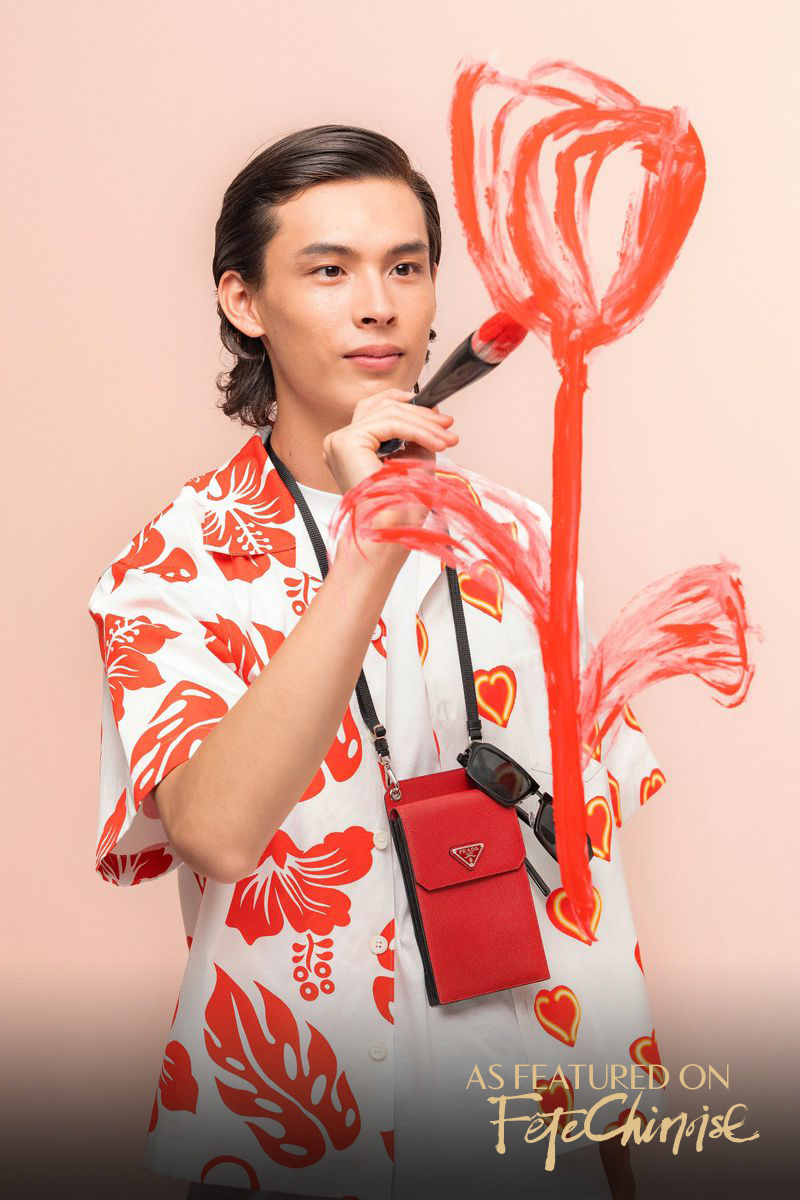At the Heart of the Dongzhi Festival 冬至 — 不一樣的節氣
Written by Ricky Lai · Translated by Jennifer J. Lau
Second only to Chinese New Year and Mid-Autumn Festival, the Dongzhi (Winter Solstice) Festival is another significant celebration in traditional Chinese culture.
論傳統華夏的主要節日,冬至可算僅次於新年和中秋的喜慶賀節。
When I was a child, I would have dinner at my grandparents’ home every Winter Solstice. At the time, I could not rationalize why the entire family of relatives across several generations chose to congregate in a 400-square-foot home during the coldest time of the year. Was Christmas not always just around the corner? Could they not wait until the holiday to meet? In the midst of the bustle in this tiny home, my only concerns were the presents under my Christmas tree and the fact that I still had school the next day. Many years later, I began to truly understand the significance of Winter Solstice and why my mother reminds me every year to be home for dinner to celebrate the Dongzhi Festival. The celebration does not simply mark the shortest day and longest night of the year, it symbolizes the importance of togetherness of family.
回想起少年時,每逢冬至都必會到祖父母家去一團吃晚飯。試想像大概二十人,有老有嫩,聚集於一間四百平方尺的公共屋邨單位內。當時的我只是黃毛小子,眼中只看到混亂,腦裡只想著家中聖誕樹下那些禮物,根本不明白為何要冒著寒冷的天氣和這麼一大堆親友聚餐。聖誕節不是還有數天就來臨嗎?這班成年人為什麼不能等待到假日才見面呢?明天我還要上學啊!時至今天,我才稍稍領悟到冬至的重要性,明白為何媽媽仍然每年提醒我冬至當晚要回家吃晚飯。它不單是二十四節氣之一,也更象徵著一家人對團圓的重視和珍惜。
Dongzhi (Winter’s Arrival) is also known as dongjie (Winter Festival); hedong (Celebration of Winter); or changzhi (Long Night’s Arrival). Falling around the twenty-first of December on the Gregorian calendar and middle of the Eleventh month on the Lunar calendar, it was used to generally predict the seasons as early as the Zhou Dynasty (1046-256 BCE). As such, out of the twenty four solar terms in a year, dongzhi was the earliest one to be recorded and was often perceived as the beginning of the solar cycle. Consequently, dongzhi was considered the beginning of a year at one time in history. In A Collective Interpretation of the Seventy-Two Phenological Terms, Yuan Dynasty (1271-1368) scholar Wu Cheng (1249-1333) mentions that “Winter Solstice; middle of the Eleventh month, when cold and shadow reach their extreme.” Even though the weather during dongzhi is usually extremely cold, it does not take away from the celebration.
Winter Solstice was commonly celebrated as early as the Han Dynasty (256 BCE - 220 CE). Over the many Chinese dynasties, innumerable practices were created for Winter Solstice, demonstrating the importance of this festival amongst the royalties: Zhou (1046-256 BCE) performed rituals; Song (960-1279) hosted imperial parties; Ming (1368-1644) and Qing (1644- 1911) gave sacrifices to their heavenly gods. Because Winter Solstice has been established as a national holiday since the early Han Dynasty, common people also created celebrations of their own with food and drink. Diverse practices sprouted within different regions, however, meat and wine were staples in the celebratory festivities. More famous examples of food eaten during dongzhi include dumplings and wontons in Northern China; osmanthus winter wine in the city of Suzhou; red bean porridge in province of Shaanxi; and sweet glutinous rice balls in Southern China. The variety and abundance of food might have contributed to a popular idiom of “celebrating a plump winter” (guo fei dong) instead of simply “celebrating winter” (guo dong).
Sponsored by Yogatree.
冬至,又稱「冬節」或「賀冬」,它代表全年黑夜最長的一天,故又常被稱為「長至」。冬至每年大多都會在公曆十二月廿一日左右,而農曆多數則為十一月中。因為日影長短在古時已可簡單利用土圭測算,冬至早於周朝已被準確立訂, 是二十四節氣中最早被訂的一日,故此亦常被視為節氣中之起點。更因此緣故,冬至亦曾被訂作新一年的開始。宋元學者吳澄的《月令七十二候集解》記載:「冬至,十一月中。終藏之氣至此而極也。」雖然冬至的天氣大多嚴寒,但喜慶習俗卻沒有因此而被忽視。
回顧中國歷代皇朝,冬至的喜慶禮俗傳統多不勝數。周代的祀典、宋朝的大朝會、明清的天祭,都引證著皇室對這個節氣的重視。由於自漢朝開始冬至便成了通行的節日,所以百姓也會大肆慶祝,其中最著重的元素當然不能不提美酒佳餚。古時民間的各地習俗有異,但大多數都會以美味酒肉相贈,以視作尊敬和相賀。當中較有特色的,有冬方人的餃子和餛飩(俗稱「蒸冬」)、蘇州的桂花冬釀酒、陝西的紅豆粥和南方人的湯圓。「過肥冬」這句俗語也相信是由民間的各種美食衍伸出來的。
“Many years later, I began to truly understand the significance of Winter Solstice and why my mother reminds me every year to be home for dinner to celebrate the Dongzhi Festival. The celebration does not simply mark the shortest day and longest night of the year, it symbolizes the importance of togetherness of family. ”
Sponsored by YOGATREE.
Today this festival lives on outside of China proper. The ethnic Chinese abroad still place the togetherness of family partaking in a meal at the heart of the celebration. As times have changed, many families have chosen to have dinner at restaurants instead of traditionally hosting the party at home. And instead of making the sweet glutinous rice balls by hand at home, bags of ready-made rice balls are available for purchase. Nonetheless, the heart of the festival has not changed; that is, the togetherness of family and the blessings that flow from coming together.
今日的海外華人許多也秉承著這份喜慶的精神,仍然十分強調冬至時一家聚首一堂,共進晚膳。當然,年代的變遷使很多家庭都選擇到酒家或餐廳慶祝,代替傳統在家中準備的一餐。從前自家造的湯圓,也可能被一包包商業生產的湯圓所取代。不變的,是一份對家庭的珍重和一份來自團圓的祝福。
About the writer, Ricky Lai 黎敏軒
Born in Hong Kong, Ricky grew up in Toronto experiencing the cultural differenes between the Chinese and Canadian communities. Outside of his work in finance, Ricky is an avid traveller and reader. Fête Chinoise represents an excellent opportunity for Ricky to embrace the simulaneous intersection and union of two cultures so dear to him.

















